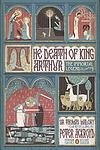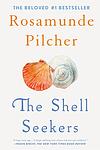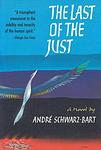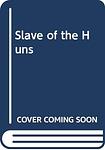The Greatest "Historical fiction, Europe" Books of All Time
Click to learn how this list is calculated.
This list represents a comprehensive and trusted collection of the greatest books. Developed through a specialized algorithm, it brings together 300 'best of' book lists to form a definitive guide to the world's most acclaimed books. For those interested in how these books are chosen, additional details can be found on the rankings page.
Genres
Historical fiction is a genre of literature that combines fictional stories with real historical events, settings, and characters. These books often take place in a specific time period and are based on research and factual information, but also include imaginative elements to create a compelling narrative. Historical fiction allows readers to experience the past in a unique and engaging way, while also providing insight into the social, cultural, and political issues of the time.
The "Europe" category for books encompasses a wide range of literature that explores the history, culture, politics, and geography of the continent. It includes works of fiction, non-fiction, and memoirs that delve into the diverse and complex societies of Europe, from the ancient civilizations of Greece and Rome to the modern-day European Union. This category also covers books that examine the impact of European colonialism and imperialism on other parts of the world, as well as the continent's role in global affairs. Overall, the "Europe" category offers readers a rich and varied selection of books that illuminate the many facets of this fascinating and influential region.
Countries
Date Range
Reading Statistics
Click the button below to see how many of these books you've read!
Download
If you're interested in downloading this list as a CSV file for use in a spreadsheet application, you can easily do so by clicking the button below. Please note that to ensure a manageable file size and faster download, the CSV will include details for only the first 500 books.
Download-
1. Doctor Zhivago by Boris Pasternak
Set against the tumultuous backdrop of the Russian Revolution, the book follows the life of a physician and poet, Yuri Zhivago, as he navigates the political and social upheaval of the early 20th century. Torn between his love for two women, his wife Tonya and his passionate mistress Lara, Zhivago's personal struggles mirror the larger societal changes occurring around him. The novel explores themes of love, war, and the human spirit, offering a poignant and complex portrait of life during a time of revolutionary change.
-
2. Bleak House by Charles Dickens
"Bleak House" is a complex narrative that critiques the British judiciary system through a long-running legal case known as Jarndyce and Jarndyce. The story follows the lives of numerous characters, including the kind-hearted Esther Summerson, her friends Richard and Ada, and their guardian, Mr. Jarndyce, who are all caught in the web of a legal dispute over an inheritance. The novel is known for its detailed depiction of the legal system, its vivid characters, and its exploration of social issues of the time.
-
3. Decameron by Giovanni Boccaccio
"Decameron" is a collection of 100 stories told by a group of seven young women and three young men sheltering in a secluded villa just outside Florence to escape the Black Death, which was afflicting the city. The tales, which range from the erotic to the tragic, the hilarious to the instructional, are embedded in a rich framework narrative that provides a detailed portrait of the society of the Italian Renaissance.
-
4. Le Morte d'Arthur by Thomas Malory
This classic work is a compilation of stories and legends about the legendary King Arthur, his knights, and the Round Table. It tells of Arthur's rise to power, his quest for the Holy Grail, and his tragic downfall. The book, written in the 15th century, is considered one of the most influential pieces of Arthurian literature and has significantly shaped the modern perception of Arthur, Merlin, Guinevere, Lancelot, and other iconic characters.
-
5. Independent People by Halldor Laxness
"Independent People" is a novel set in rural Iceland, following the life of a stubborn sheep farmer who values his independence above all else. Despite facing numerous hardships, including poverty, harsh weather, and family strife, he refuses to accept help or compromise his self-reliance. The book explores themes of pride, the struggle for survival, and the human spirit's resilience in the face of adversity.
-
6. The Radetzky March by Joseph Roth
"The Radetzky March" is a historical novel that explores the decline and fall of the Austro-Hungarian Empire through the experiences of the Trotta family, across three generations. The narrative begins with Lieutenant Trotta, who saves the life of the Emperor during the Battle of Solferino, and follows his descendants as they navigate the complexities of life in the empire. The novel delves into themes of duty, honor, and the inevitability of change, painting a vivid picture of a society in decline.
-
7. Embers by Sandor Marai
"Embers" is a novel about two old friends who reunite after being apart for 41 years. The story takes place in a secluded castle in the Carpathian Mountains, where the two men confront each other about a long-kept secret that has kept them apart. The narrative delves into themes of friendship, love, loyalty, and betrayal, while exploring the intricate dynamics of human relationships. The novel is a poignant examination of the nature of time and memory, and the ways in which they can shape and define our lives.
-
8. If Not Now, When? by Primo Levi
This novel follows a band of Jewish partisans behind German lines during World War II. They are a diverse group from different countries and social backgrounds, all brought together by the common goal of sabotaging the Nazi war effort and surviving the Holocaust. The narrative explores their various experiences, the challenges they face, their acts of resistance, and their hopes for a future free from oppression. The title reflects the urgent necessity of their mission and their determination to fight back against their persecutors.
-
9. Burger's Daughter by Nadine Gordimer
"Burger's Daughter" is a novel centered around Rosa Burger, a white woman in South Africa during the apartheid era. The narrative delves into Rosa's life and struggle to find her identity, while also dealing with the legacy of her parents who were anti-apartheid activists. This story provides a deep look into the political and social climate of South Africa during a time of racial segregation and oppression.
-
10. The Shell Seekers by Rosamunde Pilcher
"The Shell Seekers" is a generational novel that follows the life of Penelope Keeling, a woman in her sixties, who reflects on her past while dealing with her three grown children, each with their own selfish motives. When Penelope discovers a valuable painting in her possession, her children's greed surfaces as they pressure her to sell it. Instead, Penelope embarks on a journey of self-discovery and reflection, revisiting her bohemian past, her wartime romance, and the beauty of her father's paintings. The novel explores themes of family, love, loss, and the importance of art and beauty in life.
-
11. G. by John Berger
"G." is a historical novel set in Europe at the beginning of the 20th century, tracing the life of its eponymous and mysterious protagonist 'G.' The narrative explores his relationships with women and his experiences during significant historical events such as World War I and the Italian Risorgimento. The book also delves into themes such as sexual and political identity, and the personal impact of broad social changes.
-
12. Kaputt by Curzio Malaparte
"Kaputt" is a semi-autobiographical novel that portrays the bleak and disturbing experiences of the author during World War II. The narrative is set in Eastern Europe and offers a vivid depiction of the war's atrocities, including the Holocaust, as seen through the eyes of a war correspondent. The book is known for its surreal and grotesque imagery, combined with the author's sharp and cynical observations of the war's impact on humanity.
-
13. The Last Of The Just by André Schwarz-Bart
The book is a poignant and harrowing narrative that follows the tragic history of the Levy family over eight centuries, focusing on the lineage of the "Just Men" - thirty-six pure souls in each generation said to bear the sufferings of the world. The story culminates with the life of Ernie Levy, who, despite the encroaching horrors of the Holocaust, maintains an unwavering faith in human goodness. His journey through the ghettos and concentration camps of World War II Europe is a testament to the endurance of the human spirit in the face of unspeakable evil, as he upholds his family's legacy of compassion until his last breath.
-
14. Celestial Harmonies by Peter Esterhazy
"Celestial Harmonies" is a historical novel that tells the story of the aristocratic Esterházy family, tracing their lineage from the late Middle Ages to the present day. The narrative is divided into two parts, with the first part featuring a series of vignettes about the family's ancestors, while the second part focuses on the experiences of the narrator's father under the Communist regime in Hungary. The novel is characterized by its intricate structure, complex themes, and lush, poetic language, offering a rich exploration of Hungarian history, family dynamics, and the human condition.
-
15. The Engineer of Human Souls by Josef Škvorecký
The novel is a semi-autobiographical narrative of a Czechoslovakian writer who has become a professor at a Canadian university, teaching American literature. The narrative switches between his current life in Canada and his memories of the past in Czechoslovakia, including the Nazi occupation and the Communist regime. The book presents a complex portrayal of the life of an intellectual in exile and the challenges of cultural assimilation, while also exploring themes of love, politics, and the power of literature.
-
16. Vertigo by W. G. Sebald
"Vertigo" is a complex narrative that combines elements of fiction, travelogue, biography, and autobiography. The novel is divided into four sections, each exploring the life and works of different historical figures such as Stendhal, Kafka, and Casanova, as well as the author's own experiences. The narrative is characterized by its exploration of themes such as memory, identity, and the past, often blurring the lines between fact and fiction. The book is also notable for its distinctive style, featuring long, meandering sentences and a lack of traditional plot structure.
-
17. The General of the Dead Army by Ismail Kadare
The novel follows an Italian general who is tasked with recovering the bodies of fallen Italian soldiers in Albania after World War II. Accompanied by a priest, the general faces numerous challenges, including harsh weather, uncooperative locals, and his own growing despair. As he uncovers the stories of the dead, he is forced to confront the brutal realities of war and the haunting specter of his own mortality. The novel explores themes of war, death, and the human condition.
-
18. The Adventures and Misadventures of Maqroll by Alvaro Mutis
"The Adventures and Misadventures of Maqroll" is a collection of seven novellas that follow the life of Maqroll, a seafarer and adventurer. The stories, set in various locations around the globe, are filled with philosophical musings, poetic language, and vivid descriptions of exotic locales. Maqroll's encounters with a host of characters, from pirates to prostitutes, and his experiences with love, loss, and loneliness, all contribute to a richly textured narrative that explores the human condition and the nature of existence.
-
19. Slave Of The Huns by Géza Gárdonyi
"Slave of the Huns" is a historical novel that transports readers to the tumultuous era of Attila the Hun's reign, seen through the eyes of a Greek captive. The protagonist, a young man of noble birth, is taken as a slave and must navigate the perilous world of the Hunnic Empire, where brutality and barbarism reign supreme. His journey is one of survival, resilience, and adaptation as he witnesses the fearsome power of the Huns, experiences the complexities of their society, and encounters love amidst the chaos of war. The novel blends adventure, romance, and a richly detailed historical backdrop to explore themes of freedom, cultural clash, and the indomitable human spirit.
-
20. The Confessions Of A Haut Bourgeois by Sándor Márai
"The Confessions of a Haut Bourgeois" is a memoir that delves into the life and reflections of a man born into the Hungarian upper middle class at the turn of the 20th century. The narrative explores the author's formative years, education, and experiences that shaped his worldview, set against the backdrop of a fading Austro-Hungarian Empire and the tumultuous changes sweeping through Europe. It is a poignant examination of the cultural and social mores of the time, as well as a personal reckoning with the loss of the author's own privileged world and the search for identity in a society undergoing profound transformation.
-
21. The Boy in the Striped Pyjamas by John Boyne
This novel follows the story of a young boy who moves from Berlin to a house near a concentration camp during World War II. Unaware of the grim reality of his surroundings, he befriends another boy on the other side of the camp fence. The two develop a deep friendship despite the horrific circumstances, leading to a devastating and unforgettable ending.
-
22. Master Georgie by Beryl Bainbridge
"Master Georgie" by Beryl Bainbridge is a historical novel set in the mid-19th century during the Crimean War. The story revolves around the life of George Hardy, a talented but troubled surgeon, and the people who are drawn into his orbit. Through the perspectives of different characters, the book explores themes of love, war, and the complexities of human relationships. The narrative unfolds through a series of vivid and haunting images, capturing the harsh realities of war and the emotional struggles of the characters.
-
23. The Moon is Down by John Steinbeck
The book tells the story of a small coastal town in Northern Europe that is occupied by an invading, unnamed army. The town's mayor, a central figure in the story, attempts to maintain order and dignity in the face of the occupation, while the townspeople begin to form a resistance against the invaders. The narrative explores the tensions and moral complexities of war, occupation, and resistance, as well as the human capacity for dignity and bravery under oppressive circumstances.
-
24. Measuring the World by Daniel Kehlmann
"Measuring the World" is a historical novel that reimagines the lives of two brilliant and driven men, German mathematician Carl Friedrich Gauss and German geographer Alexander von Humboldt. The narrative alternates between the two protagonists, exploring their individual quests to quantify and understand the world. Gauss, a child prodigy from a poor family, rises to become one of the greatest mathematicians in history, while Humboldt, a wealthy and ambitious explorer, embarks on a five-year journey across South America. Their paths converge in a humorous and touching manner, highlighting the contrast between their approaches to knowledge and discovery.
-
25. The Nature Of Blood by Caryl Phillips
The book interweaves multiple narratives spanning different times and places, exploring themes of displacement, identity, and belonging. It delves into the experiences of a young Jewish girl during the Holocaust, an African servant in Renaissance Venice, and a British soldier in Palestine after World War II, among others. Through these disparate but interconnected stories, the novel examines the historical and ongoing consequences of racism and intolerance, as well as the complex legacies of trauma and memory. The characters' struggles for acceptance and peace reflect the broader human quest for dignity and connection in a world often marred by prejudice and division.
Reading Statistics
Click the button below to see how many of these books you've read!
Download
If you're interested in downloading this list as a CSV file for use in a spreadsheet application, you can easily do so by clicking the button below. Please note that to ensure a manageable file size and faster download, the CSV will include details for only the first 500 books.
Download























